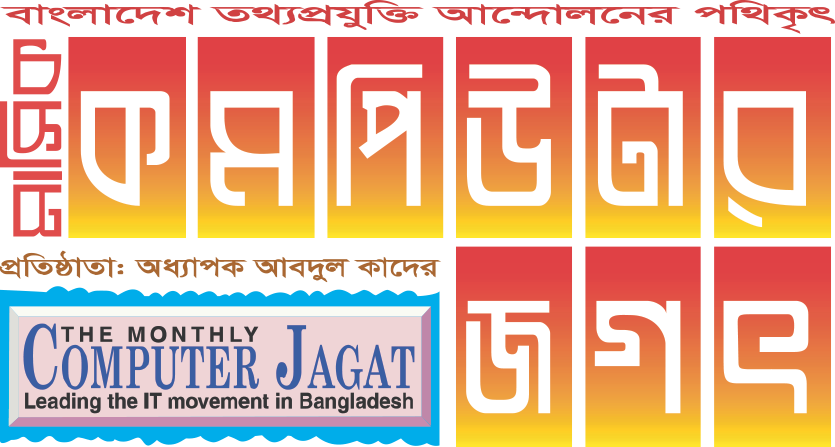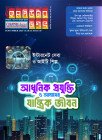হোম > NComputing Taps The Unused Capacity in a PC
লেখক পরিচিতি
লেখকের নাম:
ঈদাত অপূর্বা সিংহা
মোট লেখা:৯
লেখা সম্পর্কিত
পাবলিশ:
২০০৯ - আগস্ট
তথ্যসূত্র:
কমপিউটার জগৎ
লেখার ধরণ:
আলাপচারিতা
তথ্যসূত্র:
ইংরেজি সেকশন
ভাষা:
বাংলা
স্বত্ত্ব:
কমপিউটার জগৎ
NComputing Taps The Unused Capacity in a PC
Martin Booth of NComputing Talks to Computer Jagat - ‘NComputing Taps The Unused Capacity in a PC’
Interviewed by : Edward Apurba Singha
Please tell us about NComputing company.
NComputing is a technology company based in Silicon Valley, California. Our desktop virtualization solutions allow many users to share the power of a single PC at very low costs. NComputing is represented by dealers in over 100 countries and has deployed nearly 2 million seats of our technology in the last 2 years.
What about NComputing innovations?
The NComputing solution is based on a simple fact: today’s PCs are so powerful that the vast majority of applications use only a small fraction of the computer’s capacity. NComputing taps the unused capacity in a PC and shares it among multiple users as if each person had their own computer. Each person enjoys a full PC experience by connecting their own monitor, keyboard, and mouse to an NComputing access device, which is then connected to the shared PC. The access devices snap into place in seconds, are almost impossible to break, and save on maintenance costs because only the shared PC requires ongoing service or upgrading. The NComputing solution supports both Linux and Windows platforms.
How NComputing outshines the dominance of traditional PC?
People have been deploying PCs for more than 20 years. The PC is a great tool. But just as the PC replaced the minicomputer and mainframe, virtualization technology is making the use of existing server and desktop machines much more efficient. Up to 30 users can share the power of a single mid-priced PC today – and still not be using the full performance of the system. Our solutions cost less and require no maintenance. So management costs and complexity is also significantly reduced, which is important for organizations deploying many systems. In addition, our access devices only use 1 watt of power and produce no significant heat or noise – so they are ideal to deploy on the desktop. Power savings are tremendous, and a single (small) uniterruptible power supply can power an entire 10-seat computer lab.

Martin Booth
Director of Business Development
NComputing Inc., USA
One of the other keys to making this technology work is to deliver a smooth multimedia experience to the user. Previous attempts at thin-client computing left a lot to be desired in that regard. NComputing uses a highly efficient protocol (UXP) to communicate between the PC and the access devices, and the users see no lag in mouse and keyboard response, smooth video, and graphics and basically get an experience that is indistinguishable from the PC.
Please tell us about the NComputing implementations in different parts of world.
NComputing and its dealers have sold systems in over 100 countries. The USA is about half of our market – with over 4000 schools now using our systems, and a growing number of large businesses. India is the largest market for us in South Asia. For example, the state of Andhra Pradesh installed 50,000 seats of our technology in their classrooms due to the cost savings and energy efficiency. We also have large-scale government users in Latin America and Eastern Europe.
How NComputing involves with 50 x 15 initiative of AMD?
The AMD 50x15 initiative brings awareness of the requirements for computing in developing nations and is partnering with lots of companies to bring innovative solutions to that problem. Of course, cost is one of the key considerations, but also efficient usage of resources, including energy and e-waste are also big concerns. We partnered with AMD and BRACNet in Bangladesh to deploy labs in rural schools to show what this technology can do, and what impact it can have on local communities. The results are very promising, and are a model for broader-scale deployments around the country.
Who are the major clients of NComputing?
NComputing has over 20,000 clients, including governments, school districts, and businesses around the world. Our clients include large well-known organizations as well as school districts in major US cities such as New York and Dallas and many others.
What about the NComputing’s presence in Bangladesh?
In most countries, a local distributor provides expertise, service, and support. Axis Technology has been our partner in Bangladesh for the last two years – and they work with a network of local resellers to provide sales, service, and support in most parts of the country.
Do you have any business expansion plan for Bangladesh?
The digital economy is critical for economic growth in all countries. Where does that start? Access to computers in schools is critical to train the next generation. Many countries have programs underway to increase their student-to-computer ratio, train teachers, and develop local content and curriculum. However, most countries have very limited education budgets and getting the most student seats should be a key goal. Allowing tenders to be open for technologies like NComputing virtual desktops can stretch budgets much further. We are already working with various agencies in Bangladesh to demonstrate the benefits of this type of solution to help speed economic development.
What are the upcoming solutions of NComputing?
NComputing continues to focus on increasing the number of users that can share a PC and also the performance of our solution, for example on advanced multimedia applications. As PCs get more powerful every year, more users will share a single machine. This is a relatively new paradigm in the industry, versus thinking about a single user getting increasingly more MHz on their desk. Linux and browser-based computing (sometimes referred to cloud computing) is also becoming an increasingly popular option on the desktop – and NComputing is broadening its support for Linux as users demand that going forward.
CJ WEB
লেখাটি পিডিএফ ফর্মেটে ডাউনলোড করুন
পাঠকের মন্তব্য
২০০৯ - আগস্ট সংখ্যার হাইলাইটস



